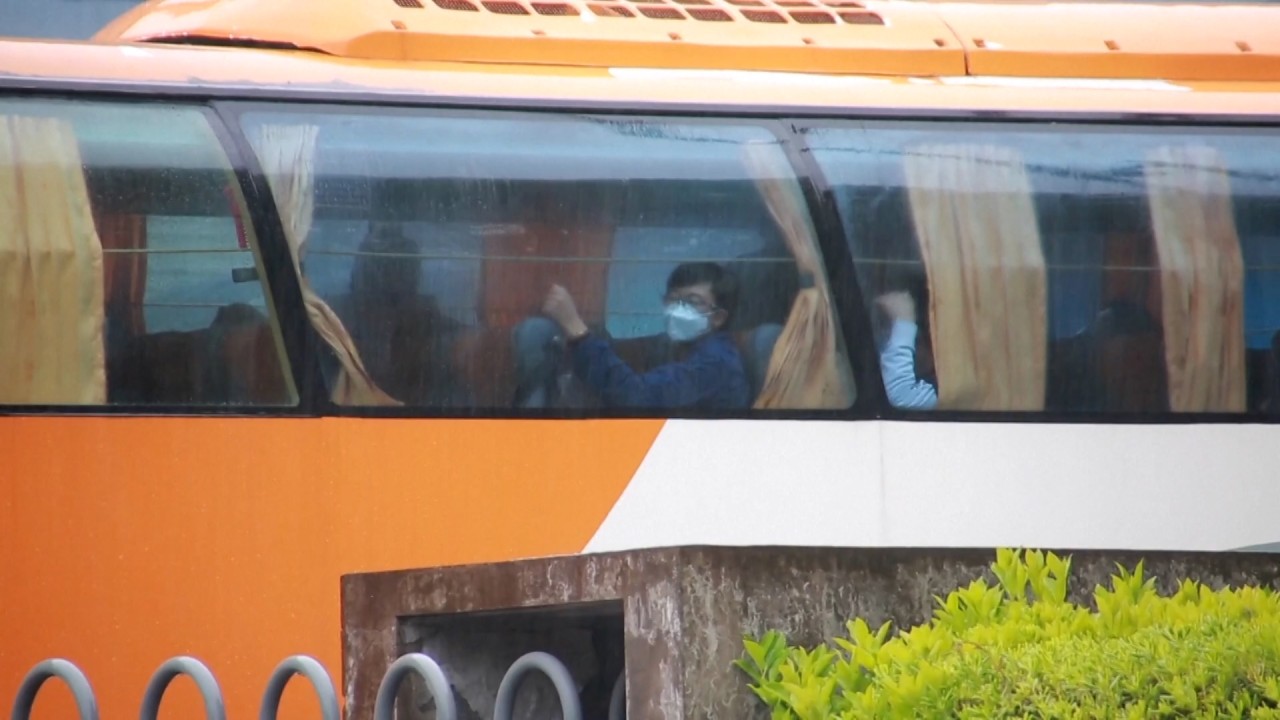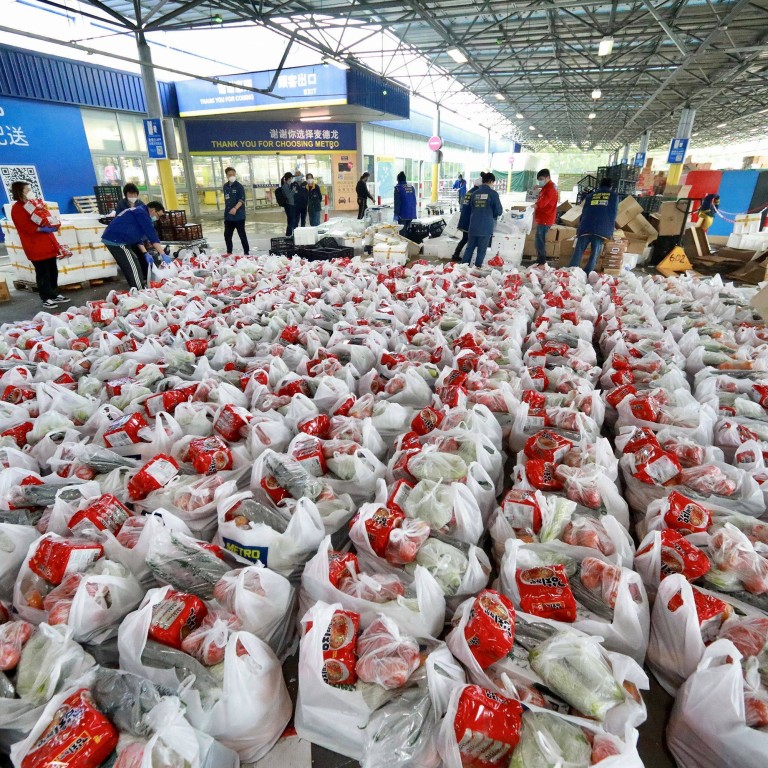
With no end to Shanghai’s Covid lockdown in sight, anger among residents is at risk of boiling over
- One of China’s most important cities has implemented a clunky lockdown that has fuelled outrage
- But what is the reality on the ground? Does the online sentiment match the reality in Shanghai?
A deep sense of unease has descended on Shanghai, China’s largest city and the economic and cultural capital, amid a surging Covid-19 outbreak that has brought the metropolis to its knees.
And yet, in Shanghai, even the figurative cheerleaders are stuck in a difficult position; unable to go to work or access consistent supplies of food and healthcare.
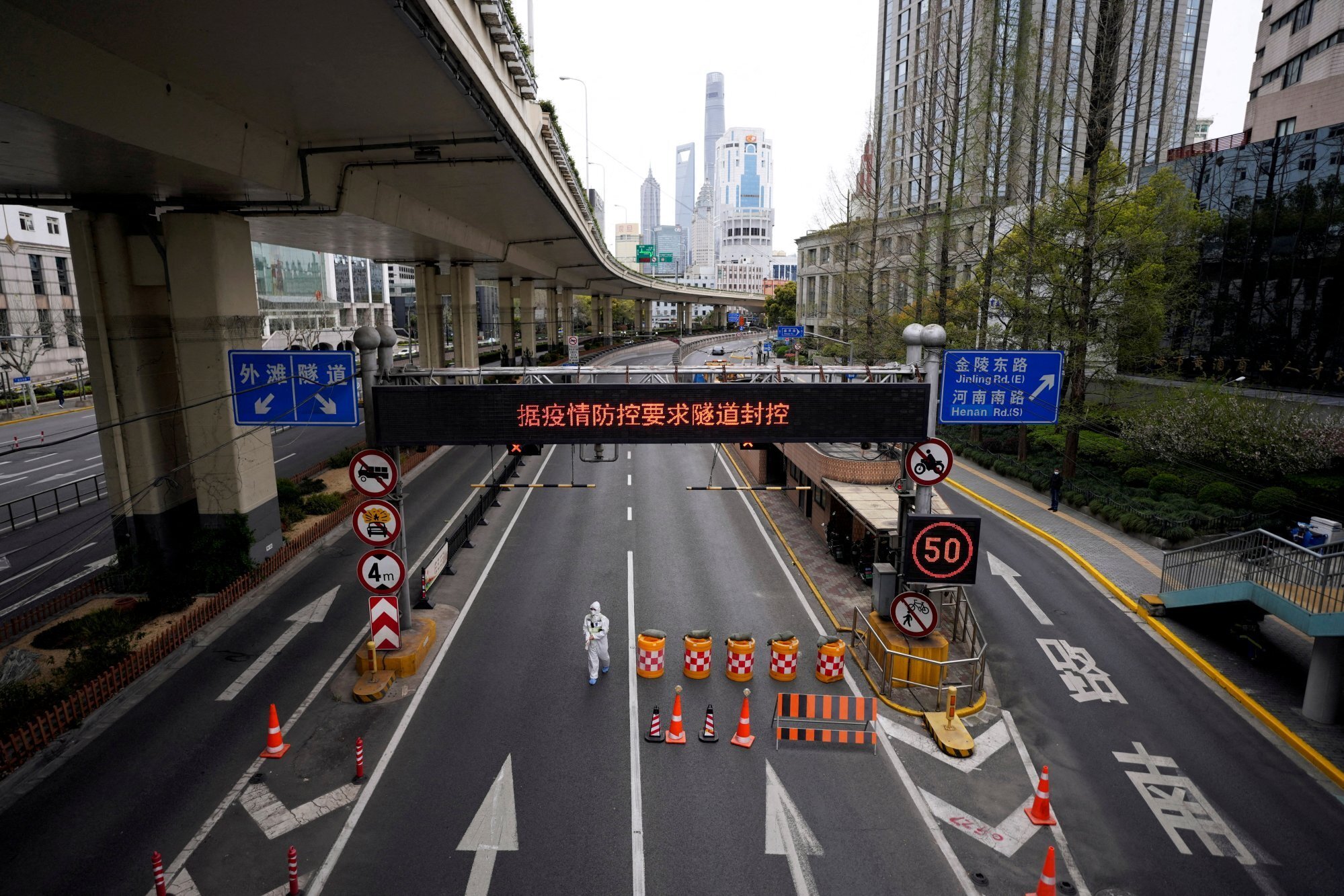
On Wednesday, President Xi Jinping said “prevention and control work cannot be relaxed” on a trip to the southern island province of Hainan, indicating that Shanghai had a long road ahead for any return to a sense of normalcy.
While Shanghai has this week allowed some neighbourhoods to step outside their homes, the city recorded 27,000 cases on Wednesday, rewriting the daily record for the 12th time in 13 days.
As Shanghai embarks on its new future, the South China Morning Post gauged the temperature of its residents stuck in Covid-19 limbo.
Testing, and testing, and testing, and …
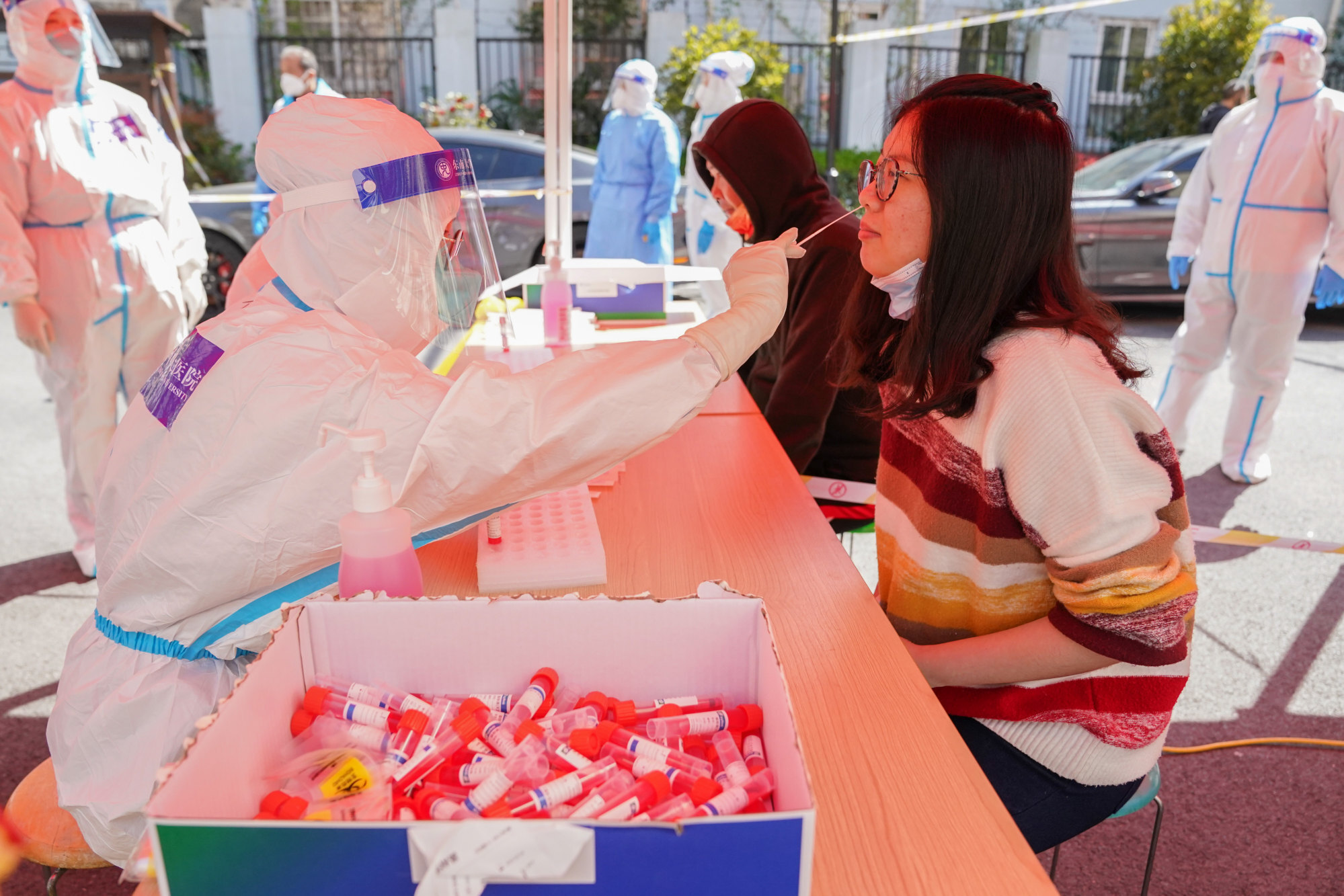
A core feature in China’s fight against the coronavirus has been the sheer volume of Covid-19 tests administered when any city experiences even the hint of an outbreak.
In the southern megacity of Shenzhen, a week-long lockdown accompanied by citywide testing appeared to have nipped an outbreak in the bud, allowing the city to return to a modicum of normalcy fairly quickly.
But in Shanghai, where the virus has got to be out of control, residents have serious concerns that the testing infrastructure is itself a source of community spread.
Jacy Cao, who lives in a community where 32 households have reported confirmed cases, said dozens of residents in her community refused to do the test on Tuesday after they learned that medical workers had tested confirmed cases before people who did not have Covid-19.
“We were very upset about this arrangement, which we believed would increase the risk of infection for healthy people because it was the same team that collected samples for all community residents at the same spot,” said Cao.
She said that the neighbourhood had issued its complaints and demanded that building units without confirmed cases take their tests first.
“But we failed to persuade them, so we simply did not go downstairs.”
But the local government seems to have caught on to this mild form of disobedience, releasing a notice on Wednesday to “intensify management of social order”.
It warned against 10 types of violations of its Covid-19 prevention policies, including refusing to be tested when required, ripping door seals that keep people inside their homes and verbally or physically attacking epidemic control workers.
One crucial problem of Shanghai’s Covid-19 response has been the strict testing requirements to enter hospitals, which has been blamed for numerous deaths since the city’s outbreak began.
Liu Liu, a Shanghai-based writer, said on Monday that the current lockdown put her parents in a difficult situation and caused the death of a former colleague. Liu became famous for attacking Fangfang, a controversial citizen journalist who documented her life in Wuhan in the early days of the coronavirus outbreak in 2020.
In a now-deleted Weibo post, Liu wrote: “This is a tragedy that would not happen if the city operated normally. Shouldn’t we re-evaluate the situation and make some adjustments?”
Pressure makes diamonds and coal
The people on whom this pressure is laid are the army of “big whites”, or the medical workers tasked with executing China’s “dynamic Covid-zero” policy while engaging in face-to-face communications with regular folks enduring lockdowns.
Thousands of medical workers have been dispatched to the temporary quarantine sites used to house Covid-19 patients with no symptoms or mild symptoms since late March, which left non-Covid-19 medical needs unmet at the public hospitals.
Holly Dong, a nurse at a public hospital in Huangpu district, said: “Patients keep grumbling about our bad mood and low efficiency. But we are exhausted, and a lot of us have threatened to quit our jobs.”
On March 23, a 49-year-old nurse who worked at Shanghai East Hospital died from an asthma attack after she was rejected from the hospital where she worked because she did not pass a PCR test fast enough as she suffocated.
Her death provoked ire among Shanghai medical staff, some of whom went on strike to protest against unfair treatment by the health authorities.
In late March, dozens of nurses at Zhoupu Hospital in Pudong, a designated medical organisation to treat local Covid-19 patients, succeeded in pushing for senior executives to enhance protection against the virus and give them enough time for sleep.
And despite their efforts, these “big whites” are not beloved, fuelled by viral videos of people in hazmat suits killing or capturing pets, using large cattle-prod-type poles to calm unruly residents or being videotaped taping seals on residents’ doors that make it illegal for them to step outside.
After a medical worker beat a corgi to death in early April, Shanghai residents compared their reality to where they were in 2021, when close contacts of Covid-19 patients were allowed to quarantine with their pets.
One person wrote on Weibo: “It’s unbelievable that they do not have enough people to take care of patients or deliver food, but they have the time to kill those harmless animals!”
Going viral
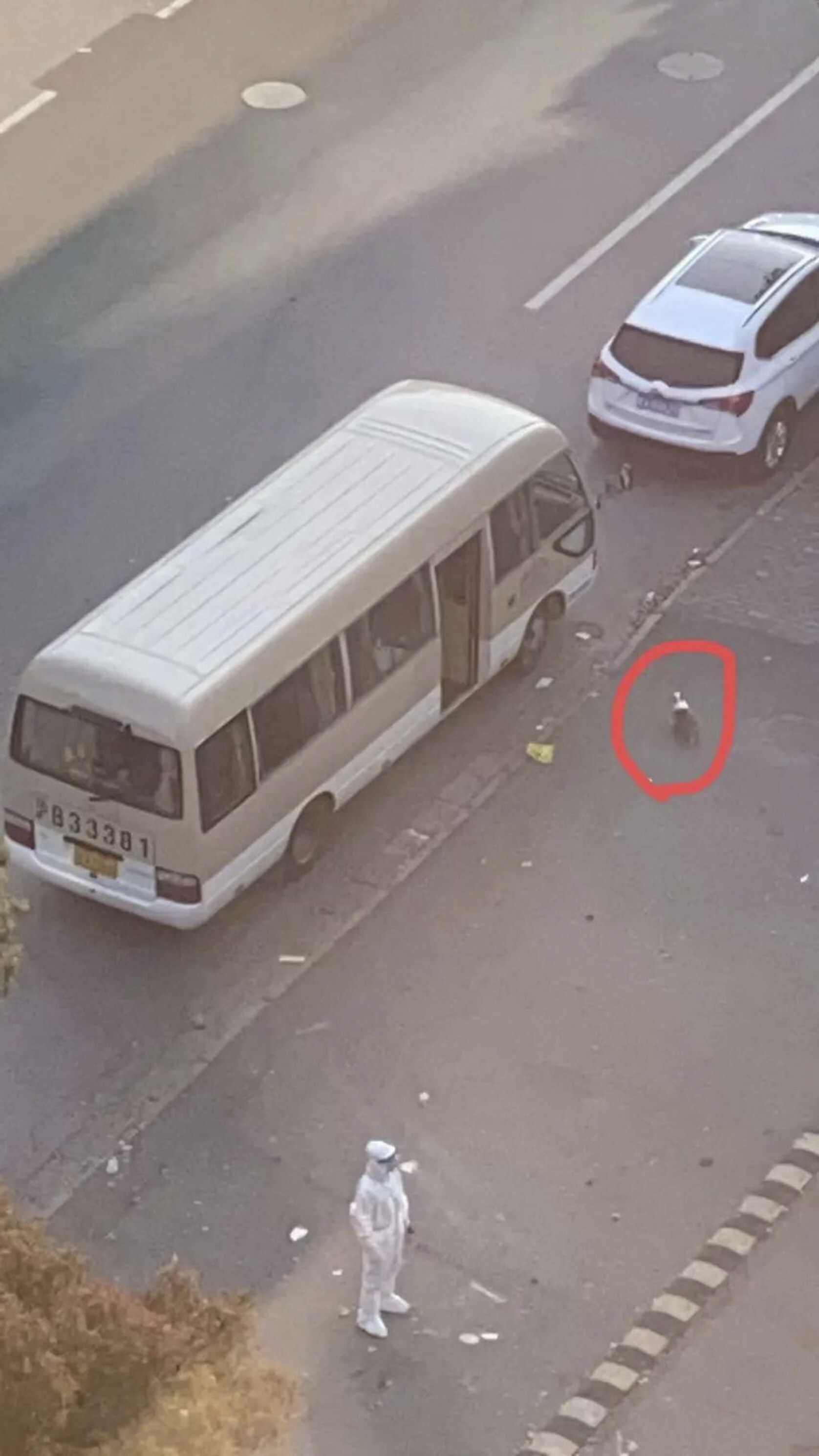
A feature of any lockdown is the reality that people will spend more time online and, in Shanghai, it has become an avenue to vent frustrations.
Many WeChat articles that comment on Shanghai’s situation have been viewed over 100,000 times, the maximum number that the platform allows users to see.
Viral articles emerge on a daily basis, including hyperbolic messages like a grandfather saying life today is worse than during the Cultural Revolution or an article entitled “Help!!” that aimed to inform people outside the city about desperate attempts to buy food.
But it is largely the videos that have struck a nerve.
In one video, a large crowd of people shouted “hand out the supplies” as they confronted security guards at the entrance to a residential compound in the Jiuting area in Songjiang district.
Videos from the centralised quarantine centres, called fangcangs, have created a sentiment where people are more scared of policy consequences of catching Covid-19 than the health impact.
In a story published today, Post reporters largely expressed sentiments that people are aware that catching the virus is no longer an immediate health emergency, but that the conditions in the fancangs could exacerbate the illness.
Desperate government workers
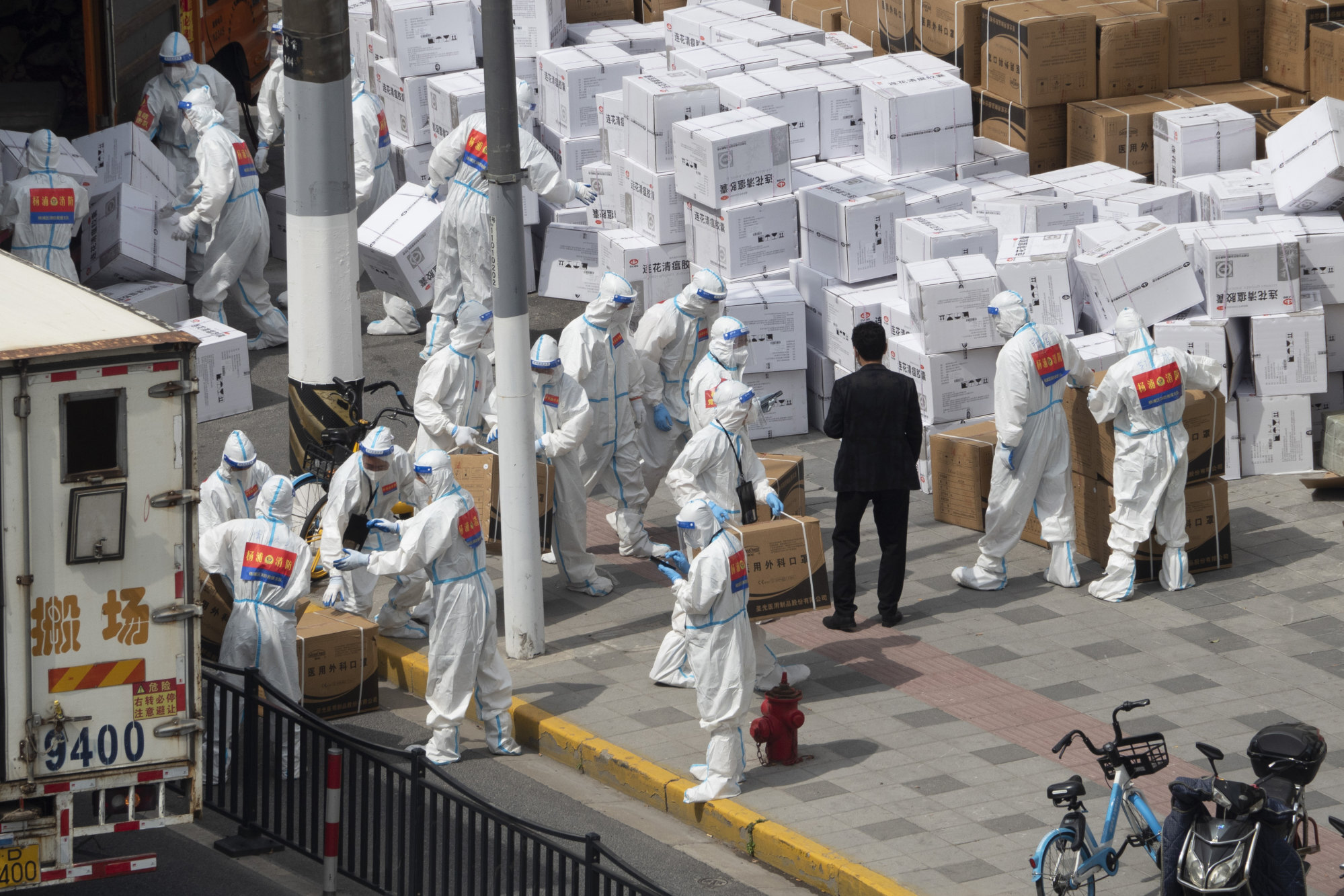
On Wednesday, a desperate phone call between a Shanghai resident seeking medical treatment and a worker at his neighbourhood committee was widely shared on WeChat.
“I feel powerless to do anything about this … I cannot bear it any more, I might quit soon,” the worker said, “I have no idea why the authorities cannot properly take care of elderly people, pregnant women, even the old people who have died.”
“I have no idea why Shanghai is like this,” the worker said.
The recording was still accessible but later banned on WeChat.
Last week, a resignation letter by another worker in a neighbourhood committee also detailed the frustration and anxiety they grapple with.
Wu Yingchuan, who leads the Covid control work in a community in the city, said no one made sure their basic daily needs were met – it is normal for them to have a quick instant noodle lunch and they have not taken a shower in 15 days.
“You could simply tell residents who test positive that the car for the quarantine centre will come … Residents had to stand outside in the cold wind at night and wait for several hours. It was us who were handling their outrage, confusion and abuses,” Wu wrote.
The article could not be independently verified by the Post, but the district’s government website showed that Wu works for their neighbourhood committee.
Last Sunday, a volunteer detailed how an unprepared and unorganised Covid-19 test process frustrated residents and volunteers.
“I think I’m at the edge of getting depression because this is not a healthy work environment for rank and file officials. I’m just a volunteer, and I don’t see any hope,” the volunteer said.
On Wednesday, leaked WeChat chat records spread online claimed that Qian Wenxiong, an official at the health commission of a Shanghai district, killed himself earlier this week. On Thursday, Shanghai authorities confirmed Qian’s death, and in a separate statement denied that Qian’s wife killed herself.
What will be the reaction as lockdowns continue?
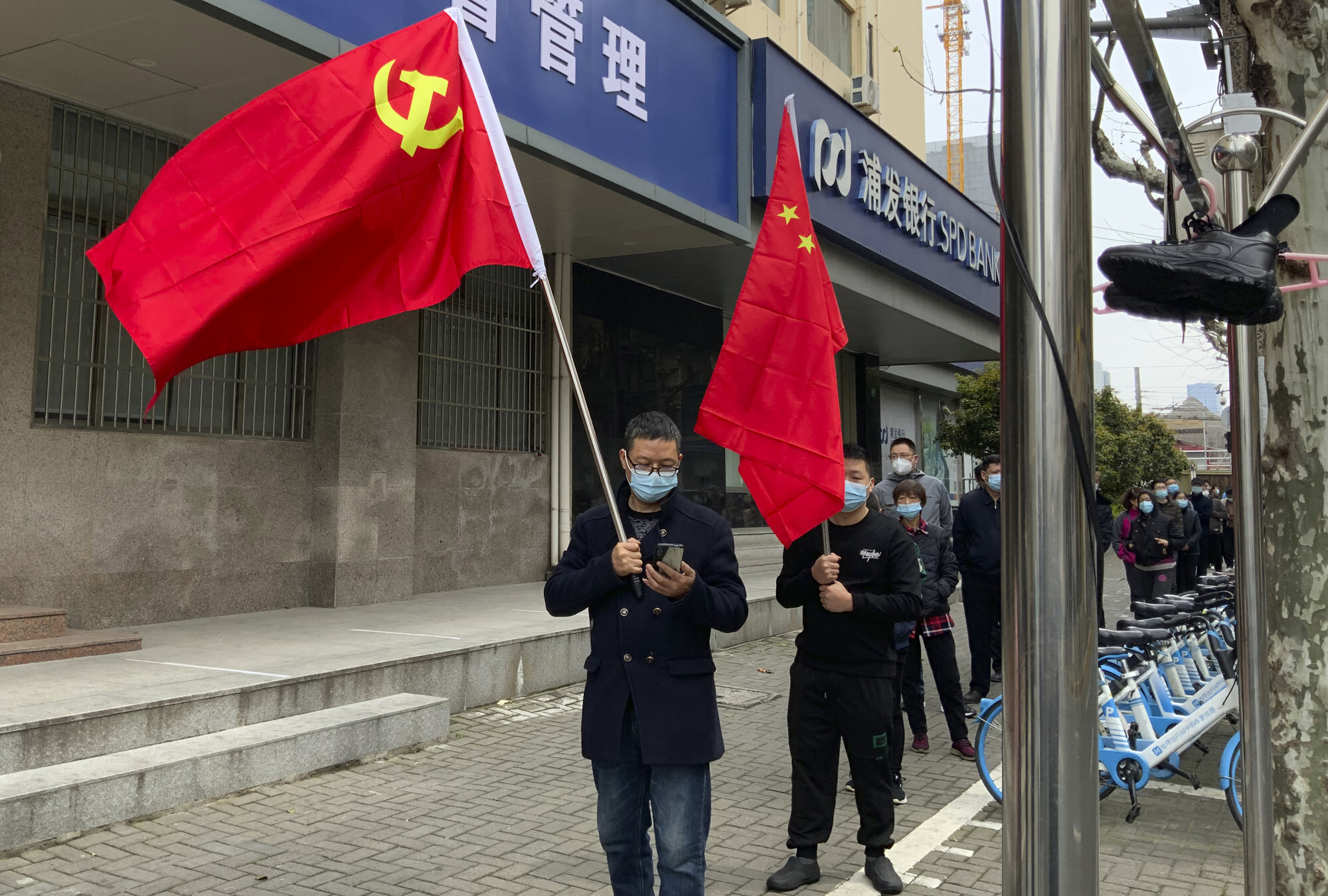
As China sticks with its strict “zero-covid” policies, people are now “voicing widely shared anxieties and fears, which is a very abnormal phenomenon,” said Zhan Jiang, a retired professor of journalism and communications at Beijing Foreign Studies University.
However, Chen Daoyin, a political scientist and former professor at the Shanghai University of Political Science and Law, said it is unlikely to seriously threaten the control of the government.
“As diverse opinion leaders have disappeared in recent years, the public has no political demands in common, except for meeting daily needs. For the time being, the people might be hungry but they are not starved,” he said, “So it is quite unlikely they will unite in rebellion.”
Wendy Zhou, a PhD Candidate in Communication at Georgia State University, said the increased venting is driven by a thirst for information in uncertain times and a desire to find connections to minimise anxiety.
“The online burst of public sentiments facilitates the release of emotional tensions, but it also might reinforce the frustration over the current status quo,” she said.
However, it is hard to say that any online comments would lead to concrete protests, she said.
The only thing for certain is that “for Shanghai citizens, their personal experiences are important anchors for shaping their collective memory and social identities, and the online sharing of stories and thoughts are essential parts of them”.
How the present will impact the future as China navigates its “dynamic Covid-zero” policy remains to be seen.
A Shanghai resident who requested anonymity for privacy reasons said:
“Chinese people will not start social unrest as long as they are fed, but the problem is that some of them are not.”





